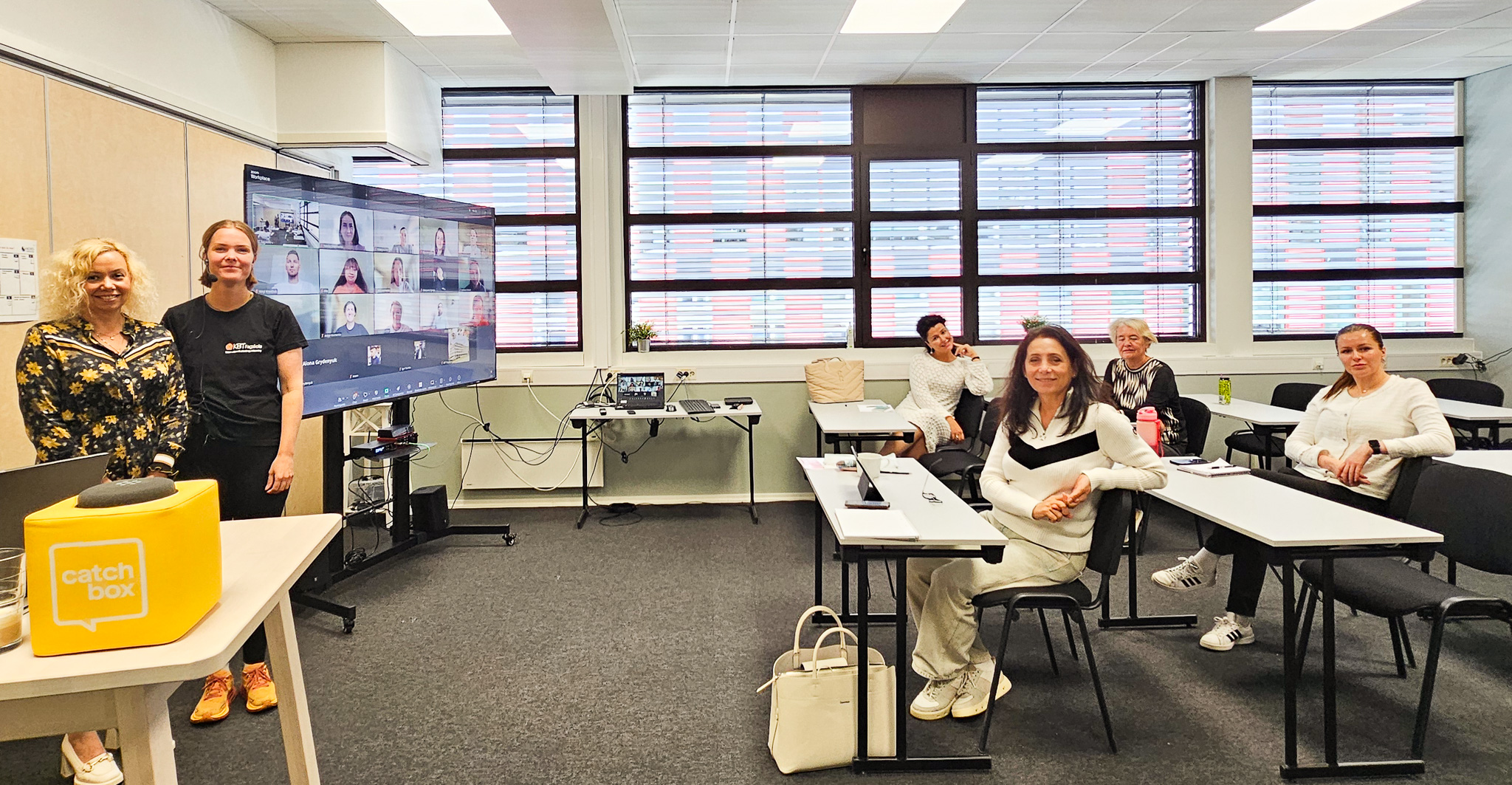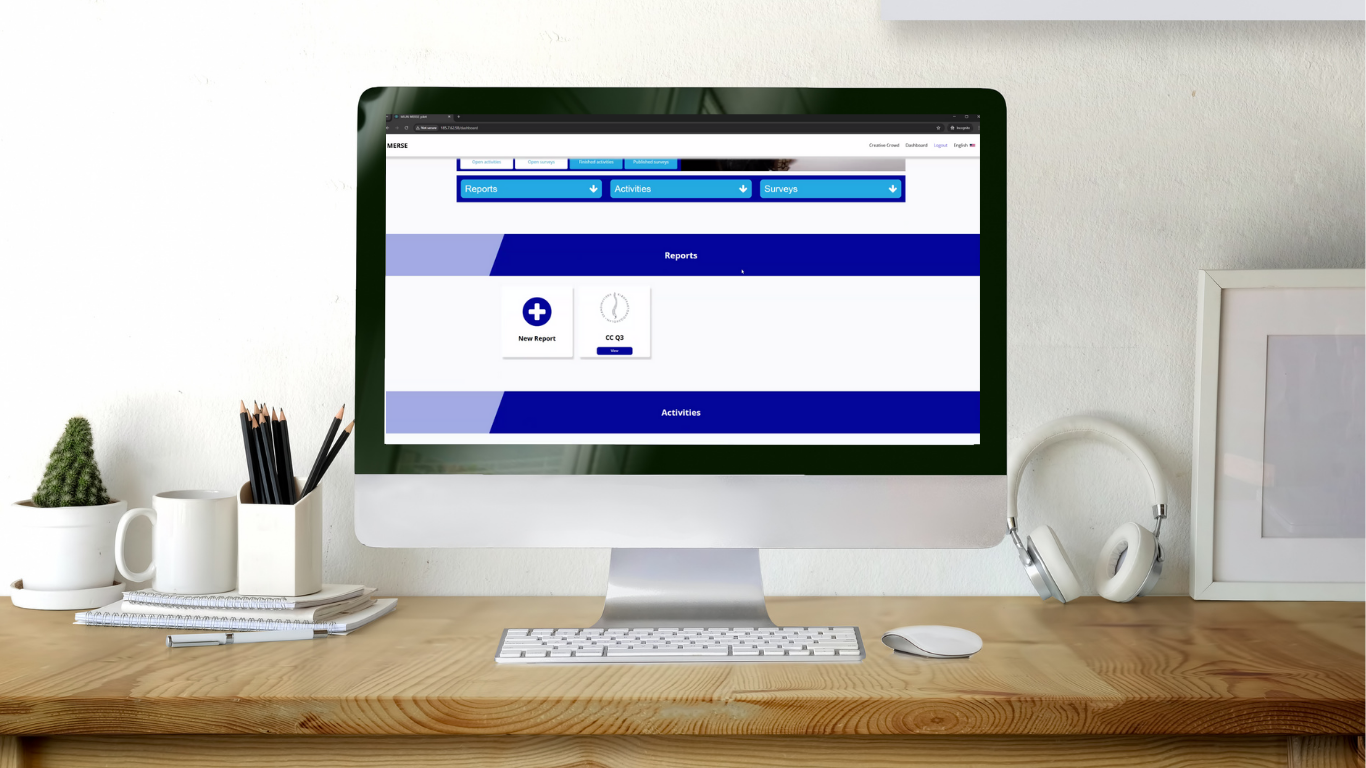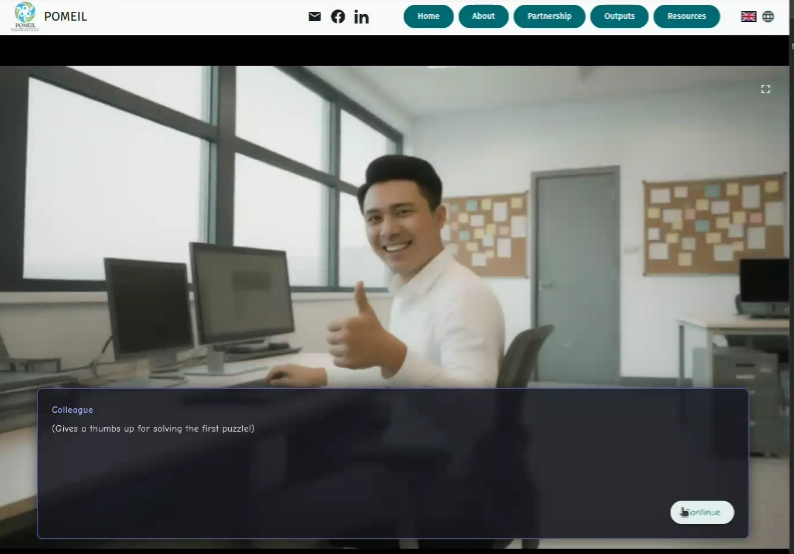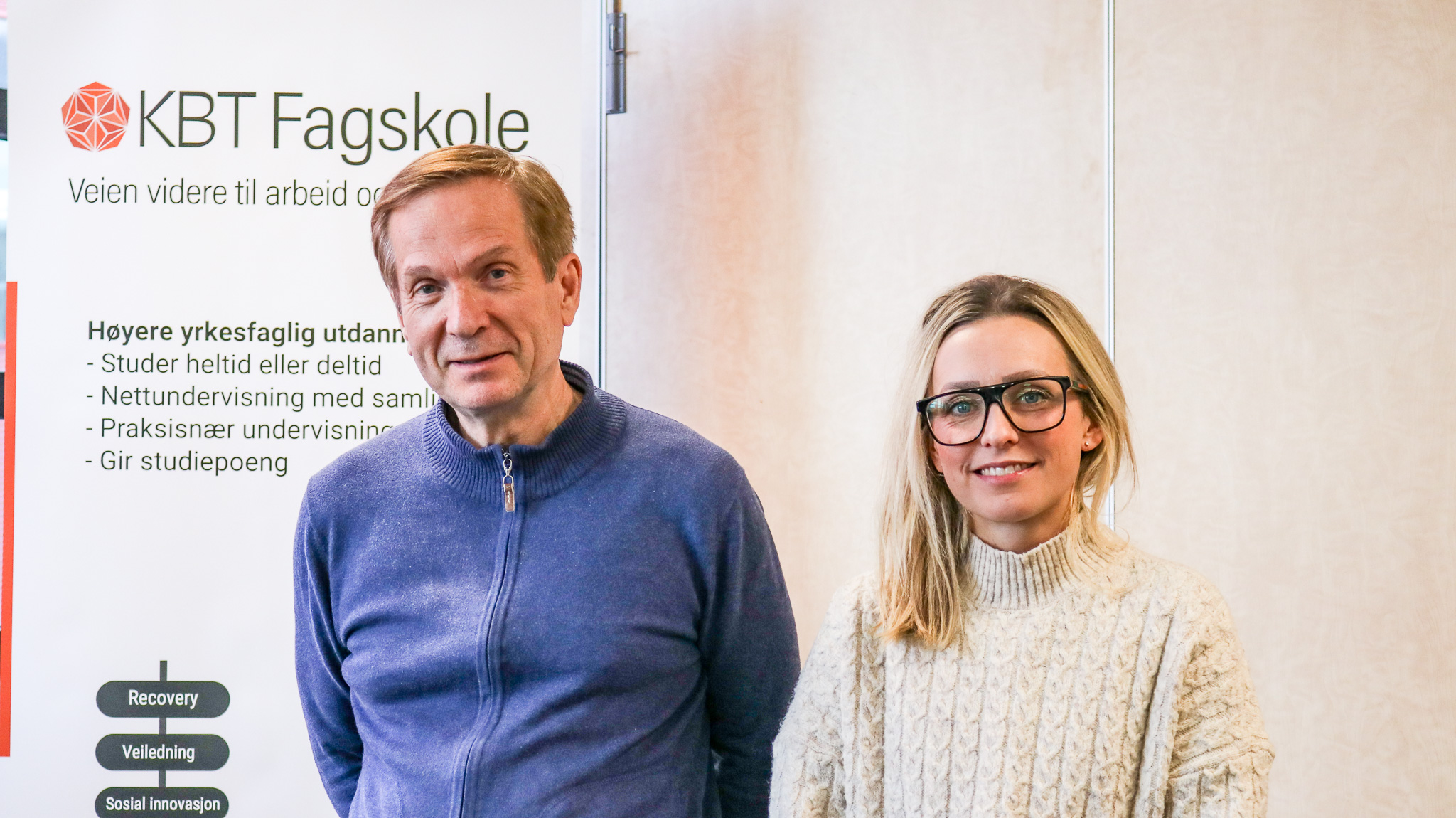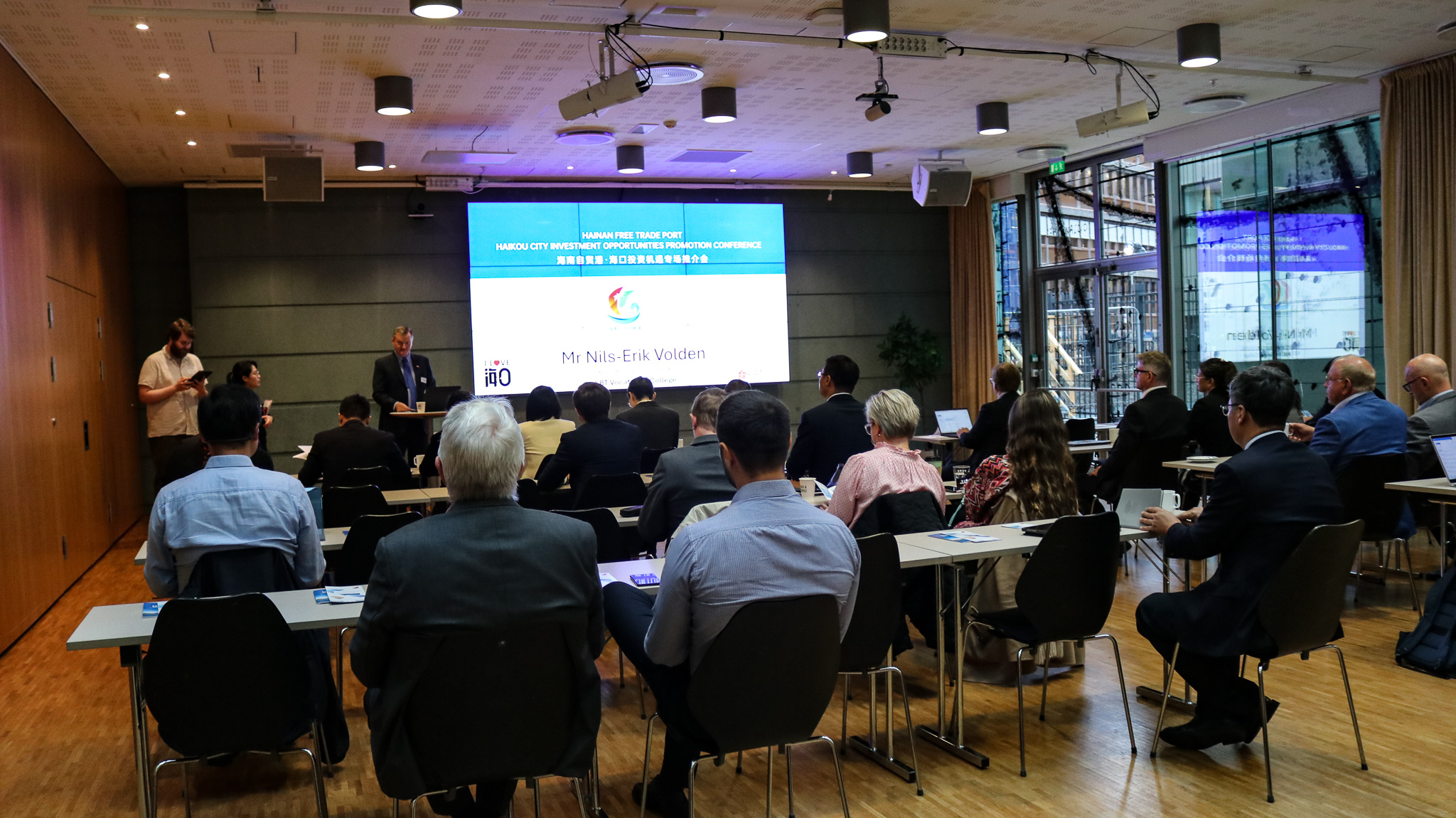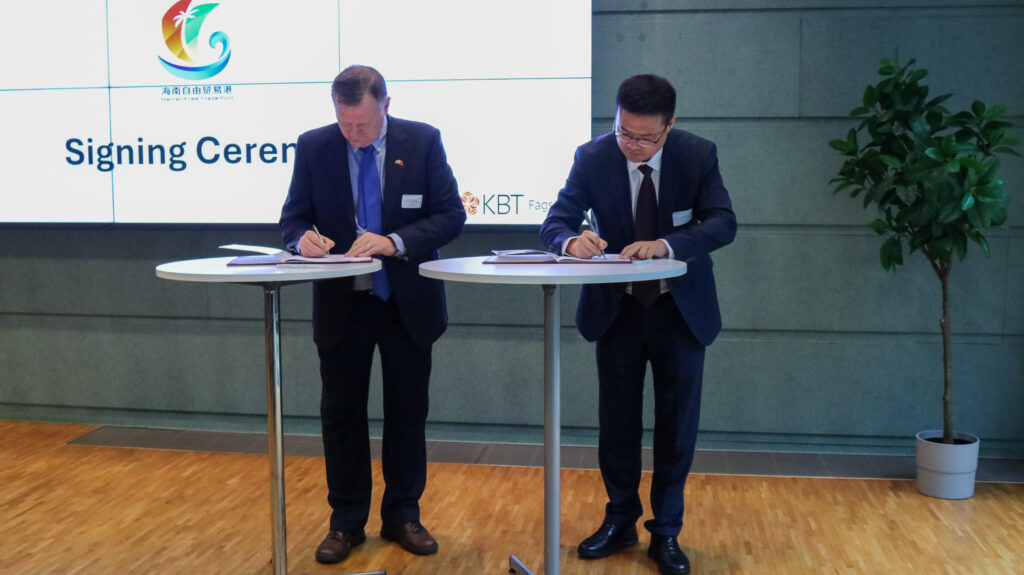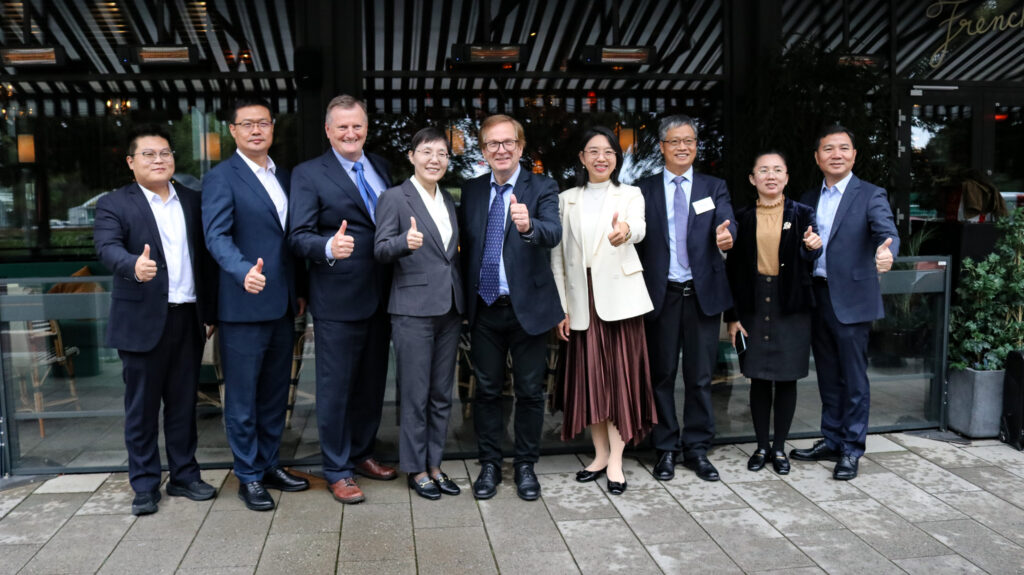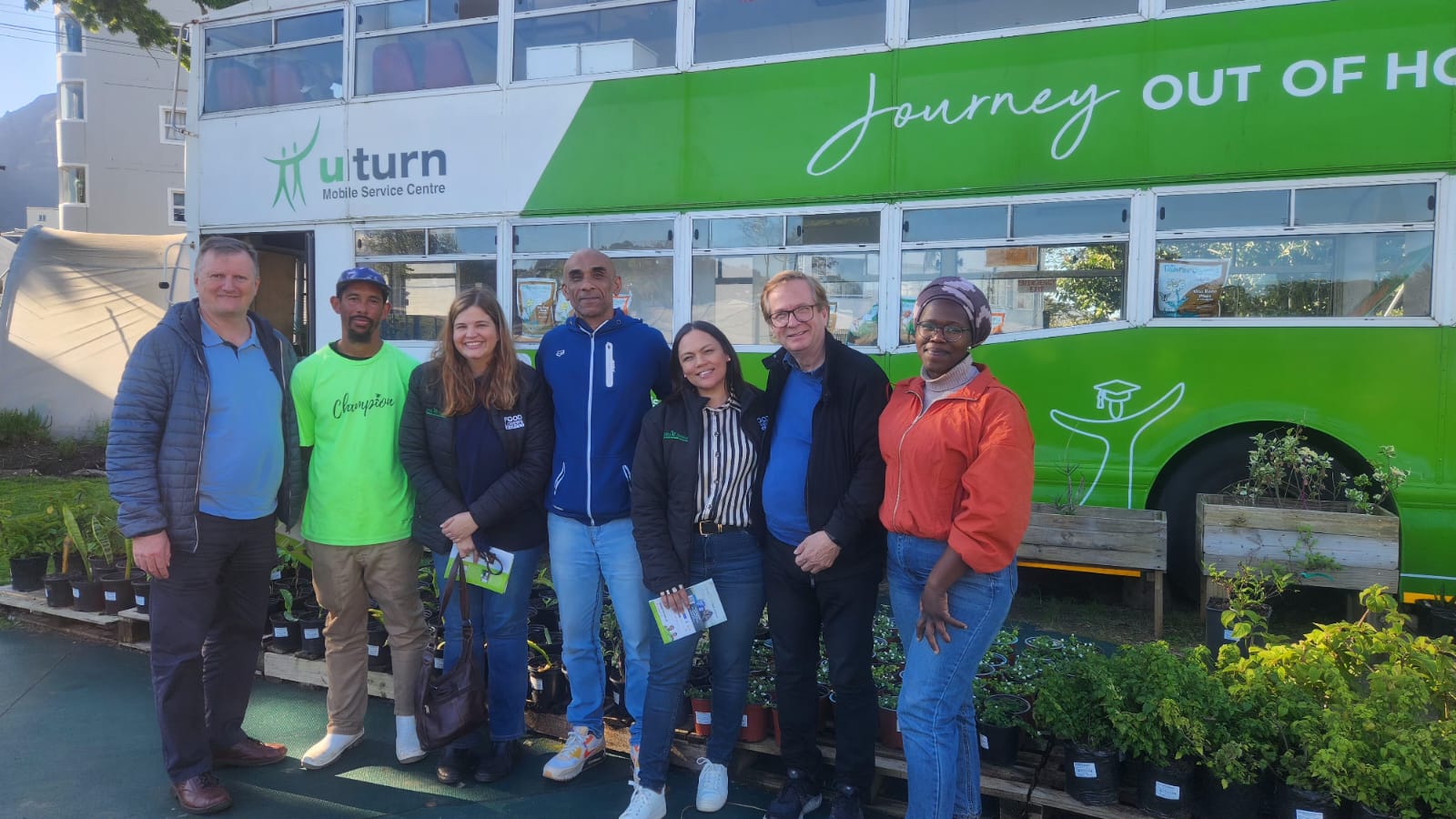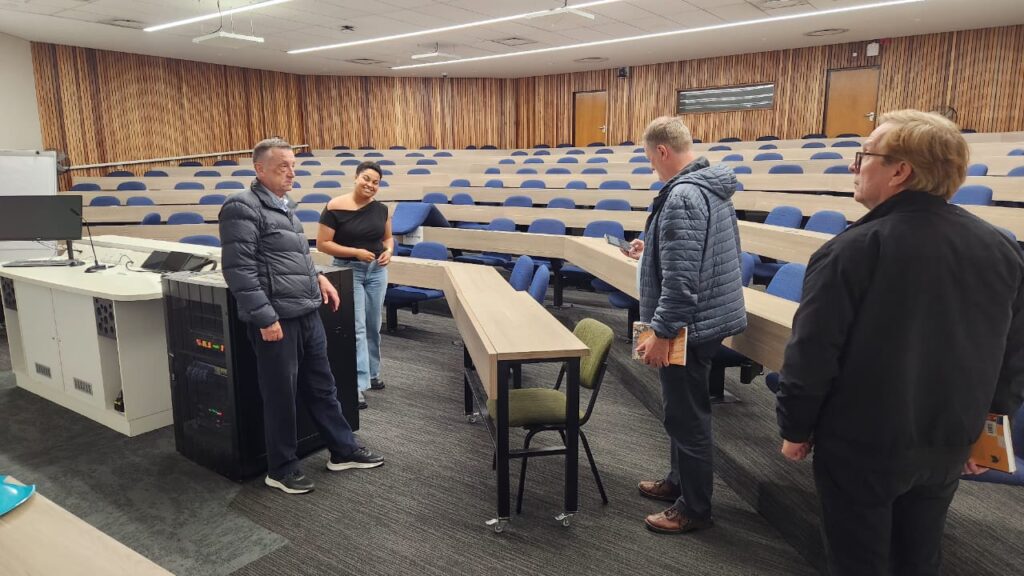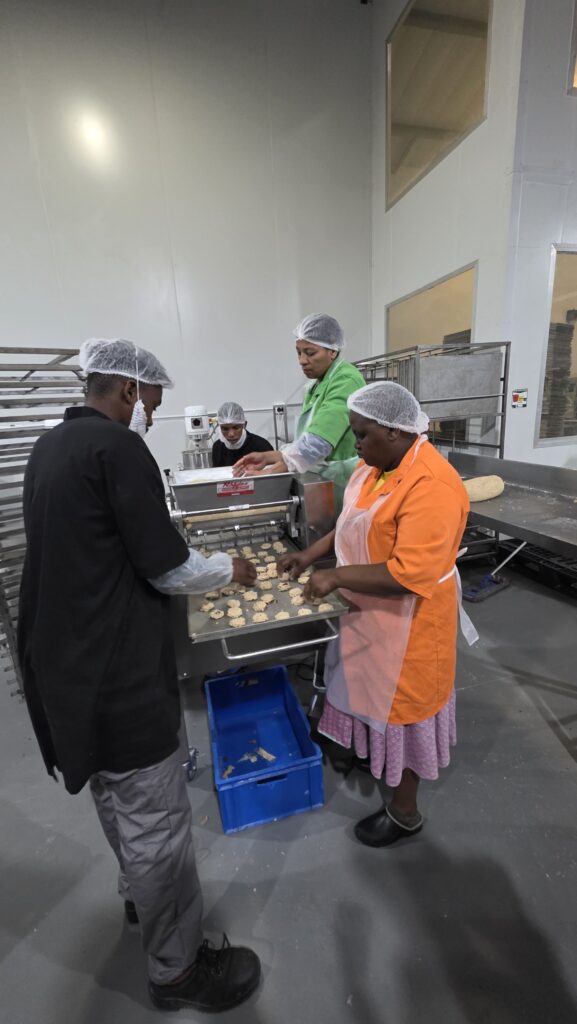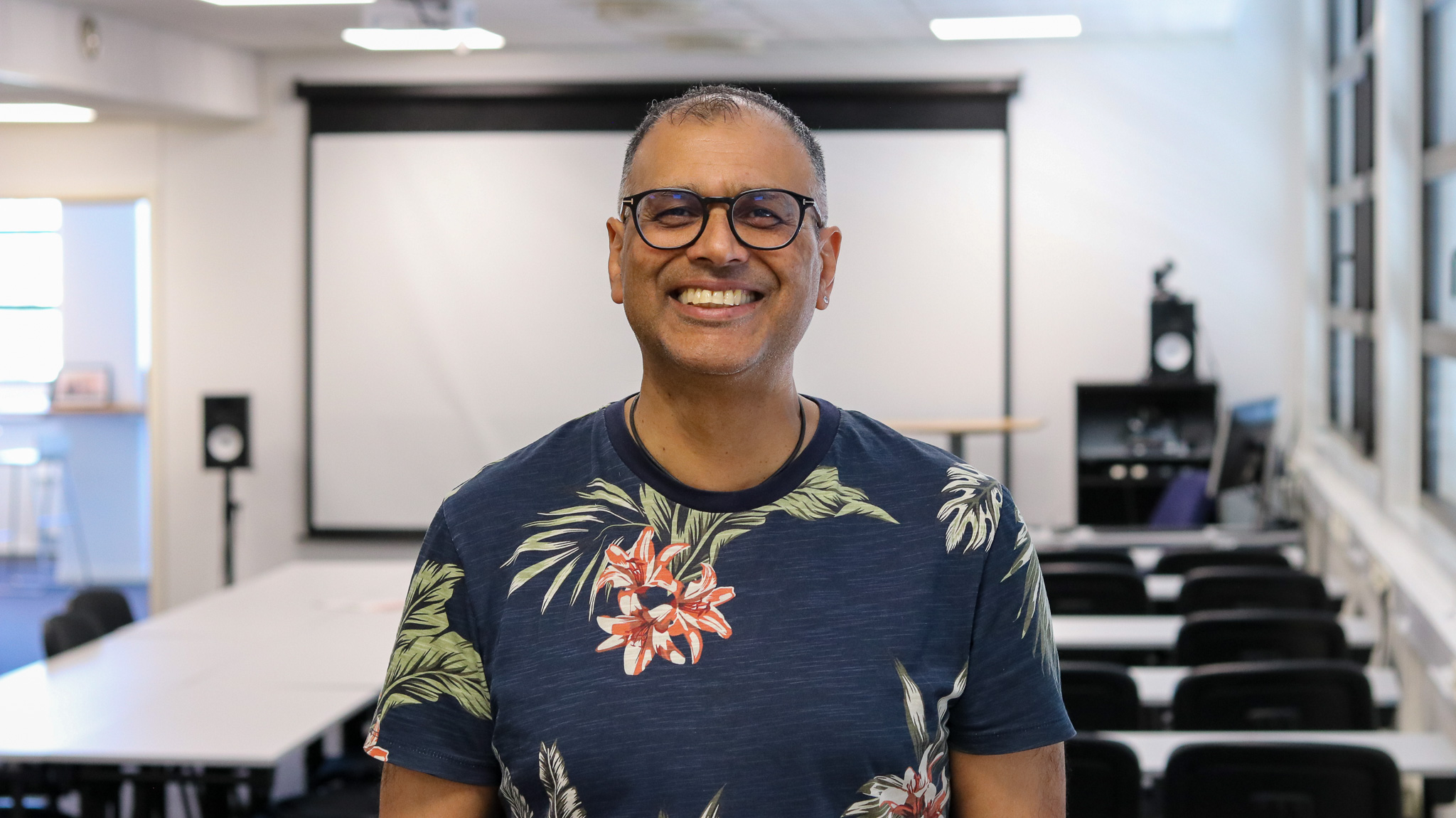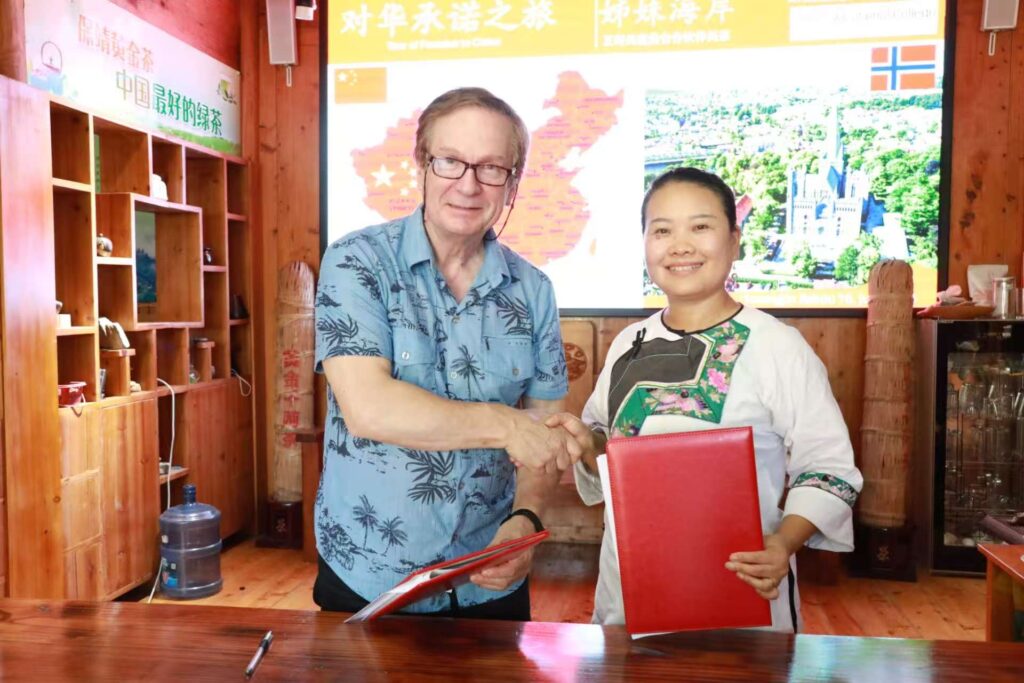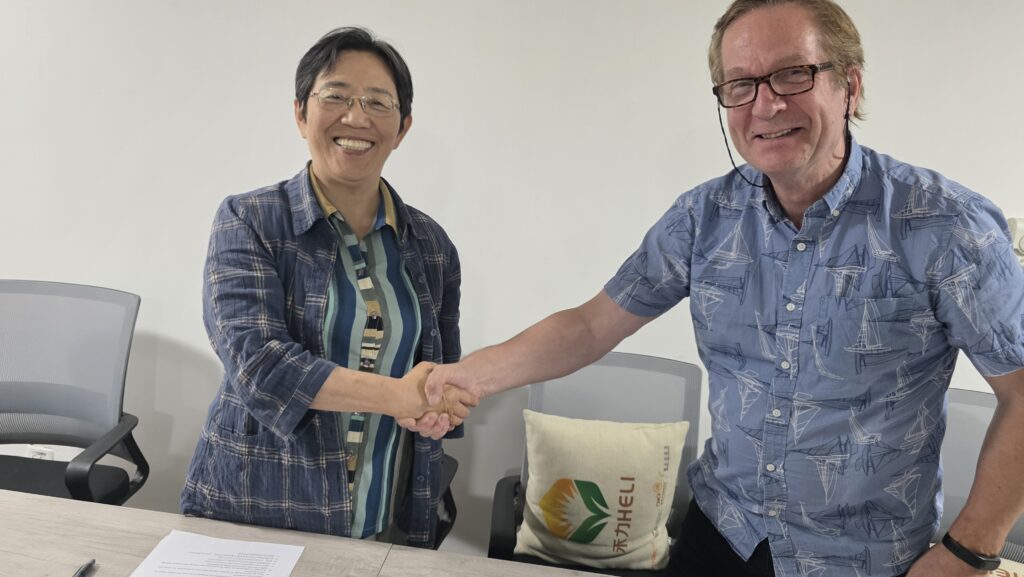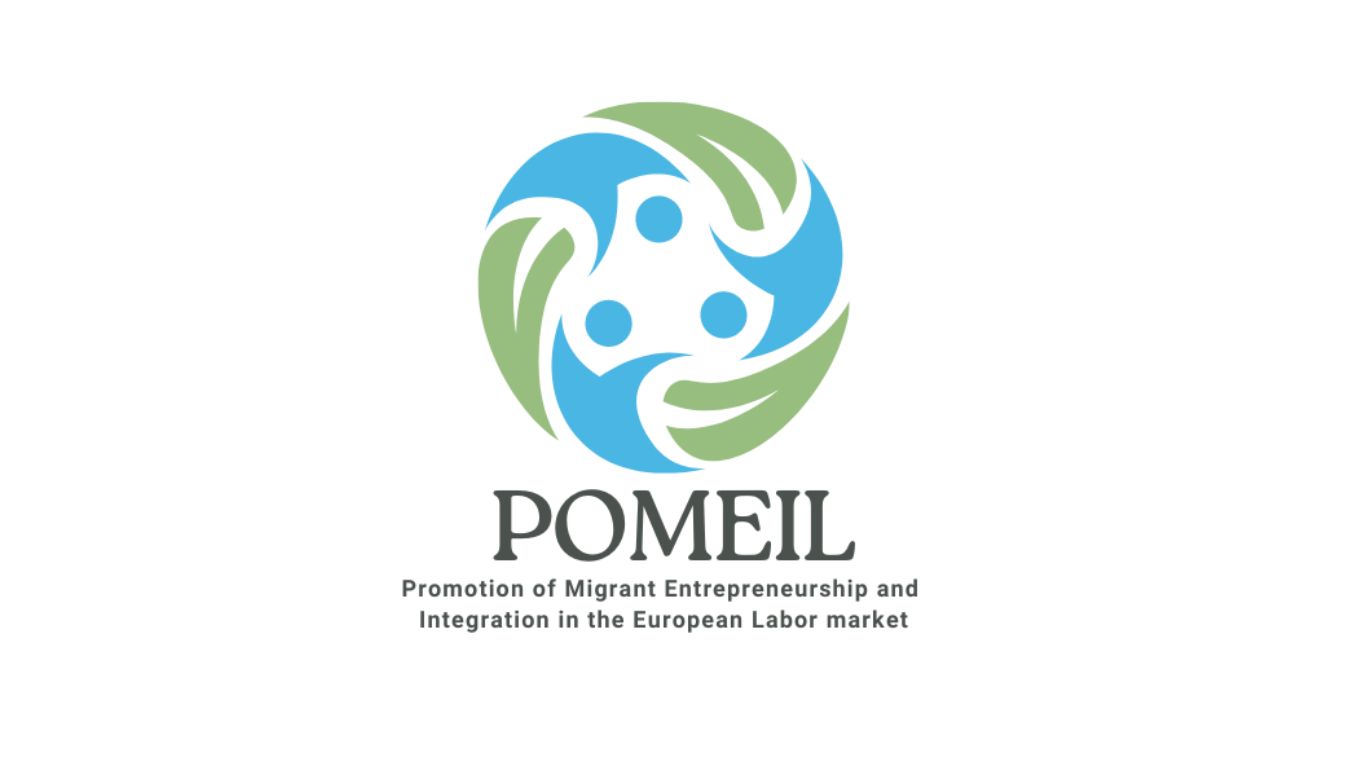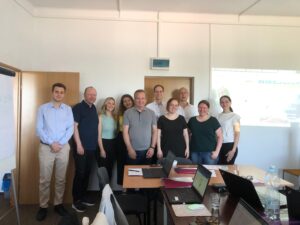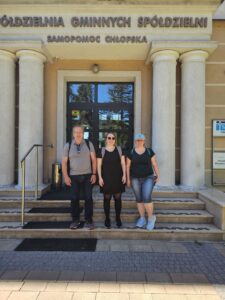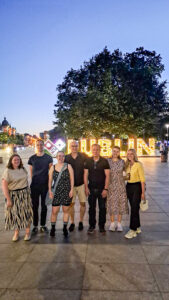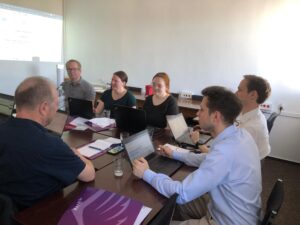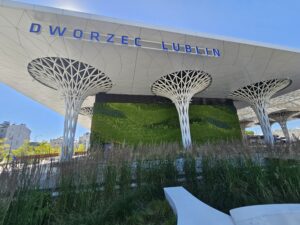Høsten 2025 ble det startet opp en egen ukrainsk klasse i sosialt entreprenørskap. Den består av engasjerte mennesker som ønsker å bidra i samfunnet, både i Norge og Ukraina. Studentene har vidt forskjellige bakgrunner, alt fra profesjonell operasanger til psykolog. I tillegg til å lære om sosialt entreprenørskap, er utdanningen en vei til integrering i det norske samfunnet.
Tilrettelagt undervisning
Bakgrunnen for at det ble en egen klasse, var rett og slett at utdanningen fikk mange kvalifiserte ukrainske søkere. Samtidig så vi behovet for språkstøtte for flere av studentene.
Derfor har vi etablert et opplegg for de ukrainske studentene. I løpet av en vanlig studieuke, kan de først delta på den norske undervisningen. Dagen etter blir den samme undervisningen gjentatt, med en ukrainsk studiekonsulent til stede som kan hjelpe dem å forstå innholdet i undervisningen. I tillegg tilbyr vi språkkurs gjennom Folkeuniversitetet AS, og de kan delta på støtteundervisning fordi vi ser at det å lære på et nytt språk kan være utfordrende.
Studieleder Thommy sier
“Studentene kan oppleve faglig mestring og sosial tilhørighet samtidig som de blir innlemmet i det norske samfunnet”.
Studiekonsulent Olga Kundryutskova har intervjuet 3 av de ukrainske studentene om hvorfor de vil studere sosialt entreprenørskap. Se intervjuene i videoene under.
Alona har bakgrunn som psykolog og sosionom. Som ny i Norge har hun opplevd at noen ting fungerer annerledes enn i Ukraina, og hun ønsker å bidra til bedre integrering av ukrainere i Norge. Hun driver blant annet med frivillig arbeid rettet mot barn og unge.
Iryna Bokal, er en profesjonell operasanger fra Kyiv. Hun kom til Norge for 3 år siden. Sosialt entreprenørskap er nytt for henne, og hun ser på hvordan hun kan kombinere det hun lærer med musikken. Hun forteller at musikken kan ha mange positive effekter på oss mennesker. Det får hun støtte i fra forskere, som vi kan lese i denne artikkelen fra NRK: Forskere mener musikk beskytter hjernen vår – NRK Vestfold og Telemark – Lokale nyheter, TV og radio)
Alla kom til Norge like etter at krigen i Ukraina startet. Hun har bakgrunn som psykolog, og har erfaring med å starte en virksomhet fra Ukraina. I Norge ønsker hun å starte tilbud for eldre ukrainere.
Fra opplæringsprogram til utdanning
KBT Fagskole har lenge vært opptatt av å kunne bidra med opplæring for ukrainere. I 2023 og 2024 gjennomførte vi en etablereropplæring for ukrainere i Trondheim og Steinkjer, i samarbeid med Prios kompetanse. Erfaringer fra denne opplæringen har vært nyttig med tanke på det opplegget vi kan tilby for den ukrainske klassen. Det er også herfra vi har rekruttert studiekonsulent Olga.
Hun har både gjennomført etablereropplæringen, tatt utdanningen i sosialt entreprenørskap og startet en organisasjon. Samfunnsutvikling Norge arbeider for psykososial støtte, integrering og økt livskvalitet for kvinner, ungdom og barn i krevende livssituasjoner.
Høyt utdannede har også behov for kompetansebygging
Per januar 2024 utgjorde ukrainere den største innvandrergruppen i Norge, med om lag 65000 personer (imdi.no). Ukrainske flyktninger har i gjennomsnitt høyere utdanningsnivå enn andre flyktninggrupper. En høy prosentandel ønsker å jobbe dersom oppholdet i Norge blir langvarig, i tillegg til at noen ønsker å studere eller pensjonere seg (imdi.no).
Vår erfaring er at selv om mange ukrainske flyktninger i Norge har høy utdanning, så har de behov for å bygge kompetanse for å integrere seg i det norske arbeidslivet. KBT Fagskole jobber med å bidra til kompetansebygging på flere måter. Både gjennom utdanningstilbudet, og prosjektarbeid. I prosjektet POMEIL ser vi på nettopp hvilke ferdigheter entreprenører trenger i et nytt land, både når det kommer til integrering og å kunne drive en virksomhet. Et av de første resultatene fra POMEIL, er et kompetansekart over disse ferdighetene. Hovedmålgruppen for prosjektet er ukrainske flyktninger i Norge, Polen, Estland og Hellas. Les mer om prosjektet på pomeil.eu.

